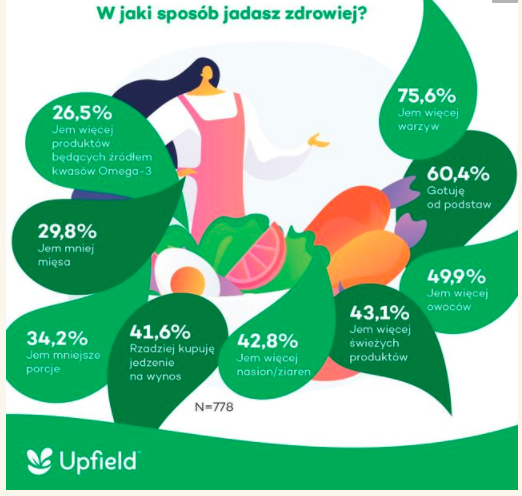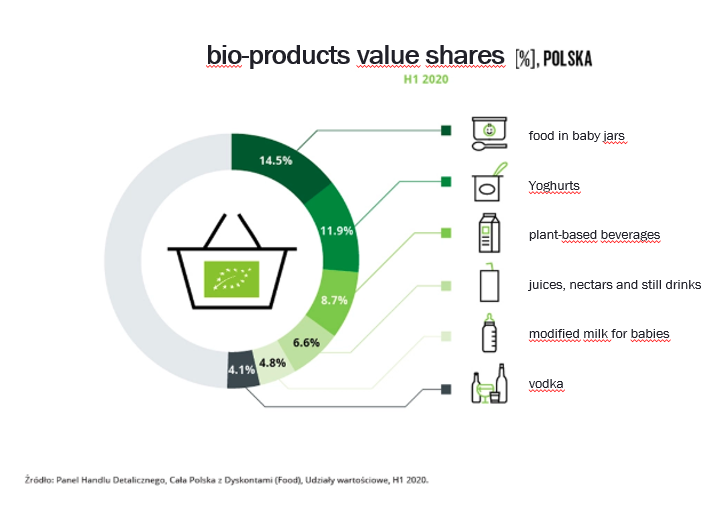
In the conditions of isolation, we limited our trips to restaurants and meals outside the house. During the pandemic, some of us decided to order delivery or take-out from our favourite places, and home cooking was extended to trying our hand at baking bread. The several-month lockdown introduced new eating habits among 40% of people, according to the survey “The Eating Habits of Poles During Social Isolation During the Coronavirus 2020 Epidemic”, which was conducted by Upfield.
We are eating healthier
When asked about healthier habits, the respondents answered that they now eat more vegetables (75.6%), fruits (49.9%) seeds and grains (42.8%) or products that are a source of Omega-3 acids (26.5%). 41.6% of us buy take-away food less frequently and more than half cook from scratch. For us, healthier food also means eating smaller portions, buying less take-away food and using fresh products more often. What makes us happy is the willingness to maintain the habit of eating healthier, which is declared by 76.1% of people.
We are trying to limit meat and choose substitutes
For almost 30% of people, a healthier lifestyle means less meat consumption, and one in three of us chooses the vegetable equivalent of meat. Interest in cooking and plant products seems to be on the rise if we look at the distribution of answers to the question of which eating habits have been retained after isolation was over – 55.3% declared that they eat less meat, 59.5% eat less dairy, and 61.9% use alternatives to meat. According to the data made available by the Biedronka retail chain, in the first half of 2020 tofu sales increased by 160%. Apart from alternatives and meat substitutes, we also choose plant-based milk (28.5%), milk-free cheese (24.8%) and margarine instead of butter (17.7%).

Sales of organic category products are increasing
The change can also be observed for organic products. According to the Nielsen study, value sales of these products increased by 20% compared to the previous year. Most often we buy food in baby jars, yoghurts and plant-based drinks (i.e. milk substitutes). The increase in sales for individual products in the organic category is also noteworthy. For example, sales of rice increased by 221% year-on-year, flour by 116% and tomato purée by 79%.
Why do we buy organic products?
As reasons, respondents in the Nielsen survey cited such things as looking after one’s health and the environment, looking for local products, or a place to shop. organic products, on the other hand, are most often bought in big-box stores. We are also willing to reach for them in discount stores – additionally, we can see an increase in the sales of private labels, which – according to the Nielsen survey – reached a 41% share in the sales of organic products.
Manufacturers are already responding to trends. More and more organic products are already available on the shelves and suitable for vegans. The response to the trend is also visible on the stores’ side. For example, Kaufland is developing its own brand K-Take it veggie with vegan and vegetarian items, and in June Carrefour opened a second store exclusively with organic products in Warsaw.
Sources:
https://media.carrefour.pl/pr/carrefour-otwiera-drugi-sklep-carrefour-bio-w-polsce/526947
https://www.nielsen.com/pl/pl/insights/article/2020/produkty-bio-zdrowo-rosna/
https://www.egospodarka.pl/165133,Plusy-pandemii-i-izolacji-zdrowe-nawyki-zywieniowe,1,39,1.html

